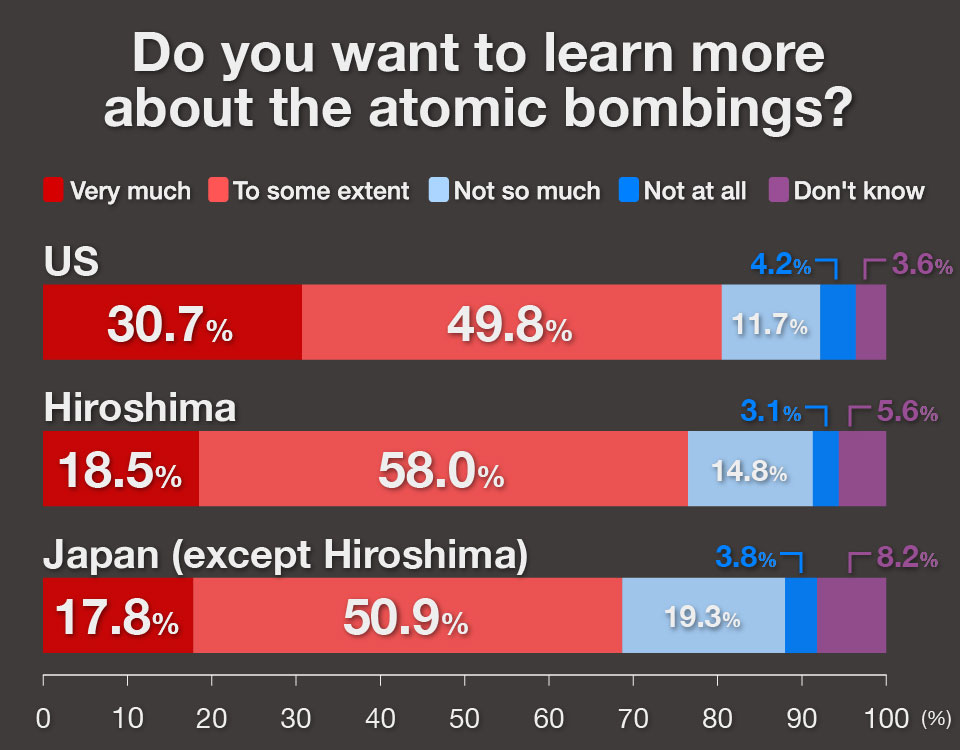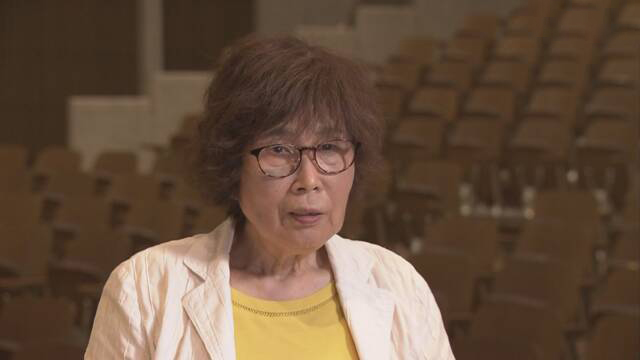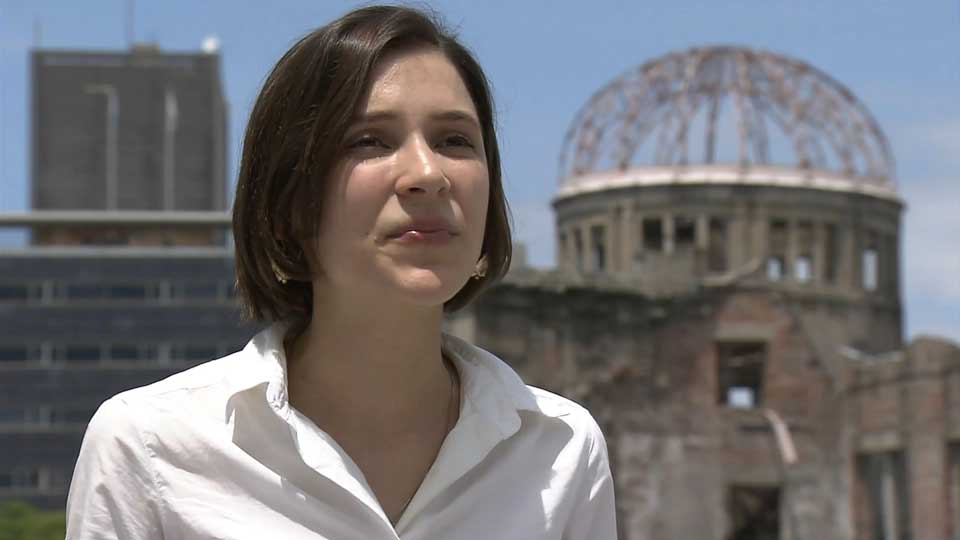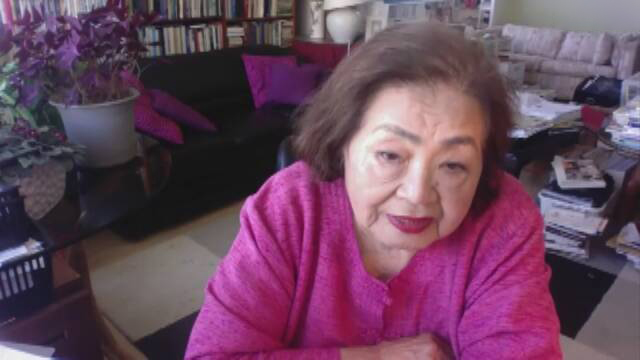Shift in awareness
NHK conducted an online survey of people from ages 18 to 34 in Japan and the US this year More than 80 percent of American respondents said they very much want to learn more about the atomic bombings, or to learn about them to some extent. This percentage was higher than that of their Japanese counterparts.

Asked about the atomic bombings, 41.6 percent of the Americans said they are unforgivable. That's more than the 31.3 percent who said it was necessary to drop the bombs.
Although it's impossible to make a direct comparison, 47 percent of Americans said the atomic bombings were justified in a survey by a US polling institution five years ago.
Starting to rethink
Ogura Keiko lives in Hiroshima. She was just eight years old when the atomic bomb was dropped on the city and has been sharing her experiences in English for many decades.
Ogura says she feels there have been significant changes in reactions from Americans. She says nearly all of those she met 30 years ago or so thought the atomic bombings were justified.
Now, she says she can tell more and more people are critical of or negative about the bombings.
This year marks the 75th anniversary of the atomic bombings of Hiroshima and Nagasaki. Due to the coronavirus pandemic, Ogura is relying mainly on online events to get her message across. Recently, she has started assessing some of the feedback she receives from overseas.
She says her messages online are being accessed by many people keen to listen to her stories, even though they are currently unable to travel to Japan.

Links to other issues
Twenty-eight-year-old American Mary Popeo moved to Hiroshima after she had a chance to listen to hibakusha accounts of what happened in 1945.
She thinks that for young Americans today, nuclear abolition is not an issue that's isolated from discrimination, wealth gaps, and other problems that are closer to home.
She worked as a guide for an online tour of the Hiroshima Peace Memorial Museum in July and spoke to 350 young participants from around the world about the atomic bombing of the city.
Mary says more young Americans seem to regard the nuclear issue as linked to other problems they are facing. She says they are probably raising the question of whether nuclear weapons are really necessary at a time when they are having to pay back student loans for years and losing jobs because of the pandemic.

We also spoke with an expert who points to growing interest in social issues in American society as a factor behind the change in public awareness.
Campaigns for tougher measures against global warming are gaining momentum in the US. Anti-racism protests are spreading from coast to coast. Young people are spearheading major campaigns through social media platforms.
Meiji Gakuin University Professor Takahara Takao says there appears to be a growing opportunity for the public to foster literacy and have a better look at politics, making many aware that those in power are fully capable of lying and leading people in the wrong direction. He says more people now seem to be using their brains and digesting what they see before making decisions.
Young people are the key
Setsuko Thurlow now lives in Canada. She works with the International Campaign to Abolish Nuclear weapons, or ICAN, and spoke at the 2017 ceremony in which the group was awarded the Nobel Peace Prize.

She says young Americans are becoming keen to take on human dignity as a core value when they decide how to act. They believe that doing so will make their society a wiser and better place to live.
She says she places high hopes on young people since they make her feel strong enough to face up to the darkness she currently sees.
Thurlow says she wants everyone to understand that believing in young people really matters and that we must place our hopes and expectations on them.

